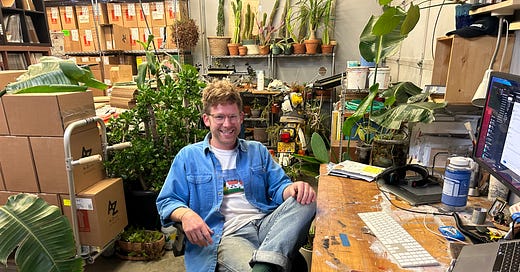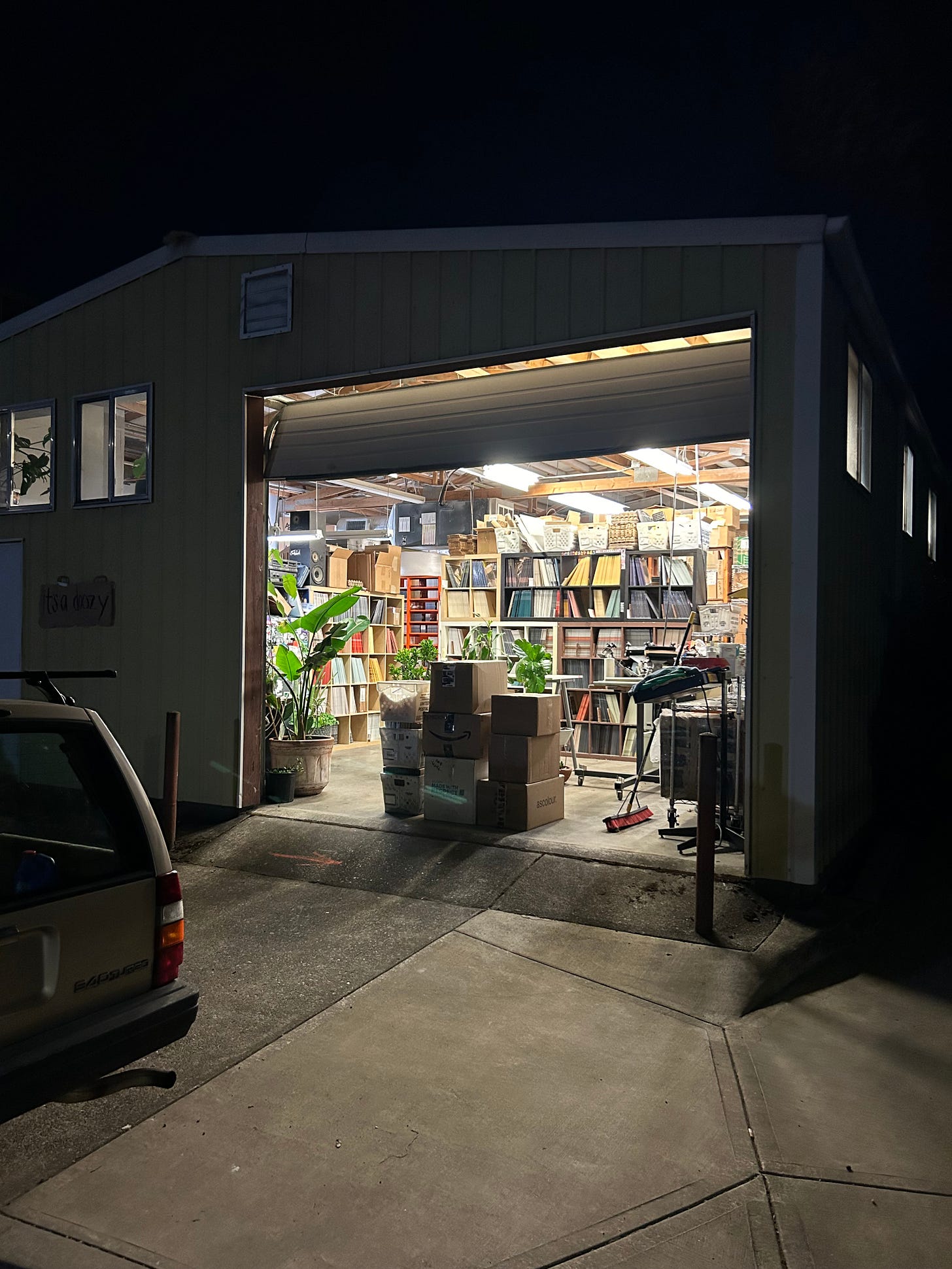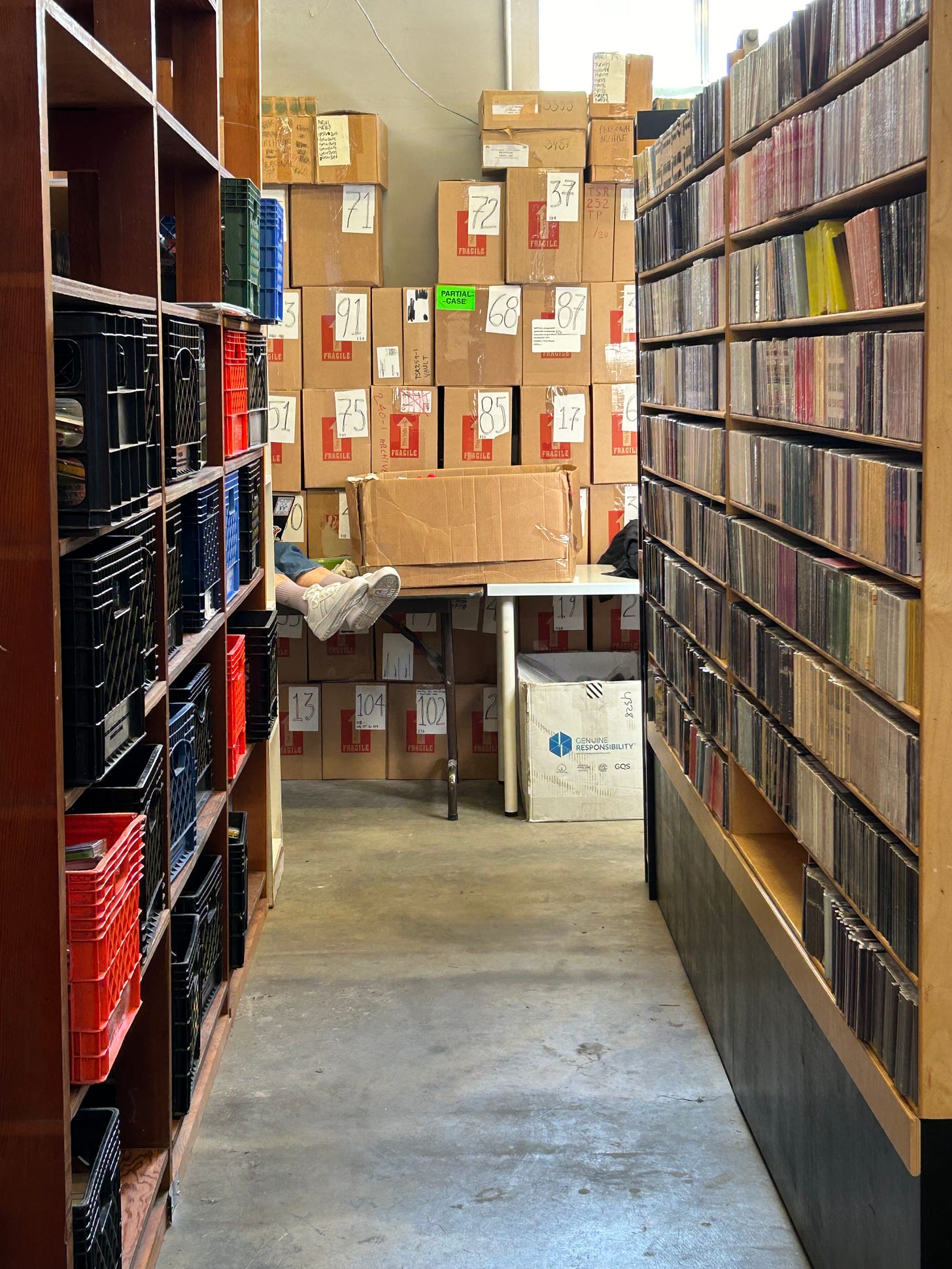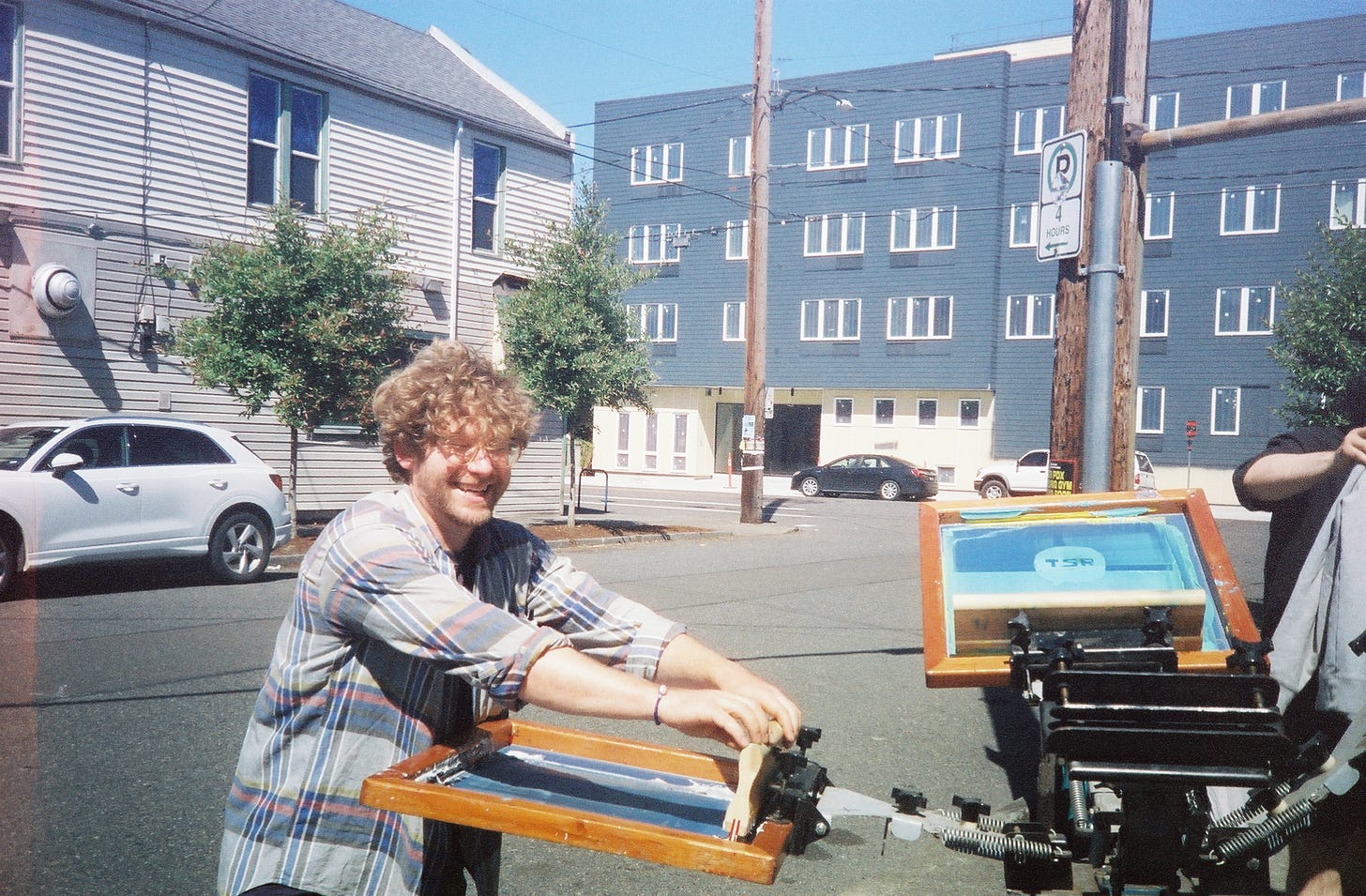I read an article recently in the New Yorker by Kyle Chayka about his decision to quit Spotify, a choice I think many people who read this newsletter probably wrestle with frequently. The thesis of the article is that the platform makes it harder to find the things you seek out, influencing your choices rather than facilitating them. Chayka acknowledges that the convenience and breadth of the app is nothing short of an eighth wonder, but that rather than the utopia of access and discovery Spotify promises, it’s created an online experience akin to riding the Tornado: everything funnels to one place.
When I first heard of Kevin Duquette, it was through a twitter post he made about an idea for a Spotify-alternative called tone. His post read: “imagine spotify w/o the data hoarding and payola. bandcamp w/o the union busting. all owned and maintained by everyone who uses it.” In the moment, it sounded idealist, impossible even, to compete against a tech giant like Spotify–with a market share more than double that of the next competitor–but after talking to Kevin, I can’t think of anyone more capable and committed to the task.
Kevin is in the music industry. Growing up in Western Massachusetts, he was ingrained from a young age in a vibrant local music community, where he started booking DIY sets. He remembers, “Early on, I was like, ‘I want to document this and be part of it somehow.’” He taught himself to code and created pages for his favorite artists, posting about their shows and releases. “MySpace came along a year later and made that all irrelevant,” he laughs, and I realize Kevin nearly invented MySpace.
This deep appreciation for music is what informs Kevin’s approach to the industry to this day. His label, Topshelf Records, started as a way for him to support his friends’ bands, and quickly expanded to a roster of artists that the Topshelf team really believes in and loves. “I’m probably the only person on earth who really likes every single thing Topshelf has released,” he says, “I don’t expect it to cater to all palettes.”
To Kevin, Topshelf exists as a single component of a larger ecosystem–he is certainly being the change he wants to see in the world. Topshelf’s artists own their masters (“The music is indisputably theirs,” Kevin reasons), Kevin wants to expand his efforts into music business education for artists via his nonprofit sone, and tone is a platform owned and maintained by both musicians and listeners. While these projects seem disparate, it’s clear that Kevin has a vision for the way that music could be.
“Things are…” he pauses, choosing his words, “...incongruent with metadata and the flow of information that would be really useful for artists, pretty much all of the really boring shit that determines how music is facilitated and distributed. Why doesn’t it work better?” Artist education and new business models for streaming like tone go hand in hand in efforts to bring value back to musicians. “I want to make a music listening service that, in serving its audience, passively educates–why all this information is required, where it goes, what it’s used for.” He describes a gamification of steps for artists to upload music (a bunch of acronyms that I, an artist, admittedly do not understand) to get the most money possible out of their product. His experience at Topshelf, working with young artists without management teams, is what made him realize that a lot of musicians just “don’t know the difference between their publishing and master royalties” (I can hear myself googling this question in the background of the audio of this interview).
“I see tone as a way to de-obfuscate a lot of this information, and empower artists,” he explains. The service is designed to be “listener-attention-centric”, meaning that it’s pay-what-you-can, split proportionally among artists per billing period. “If you pay ten dollars at the beginning of the month, listen to 40 seconds of a song, and then go on vacation for a month without a phone, all ten of your dollars will go to that artist,” he explains, telling me also that they’re measuring down to the millisecond what listeners are streaming. This model is in direct opposition to Spotify; since April of this year, artists need to hit a minimum number of plays to even be eligible to start making $0.003 per stream. For context, Apple Music pays $0.006 per stream, at the top of the market.
“Artists lead everything, from social movements to taste,” Kevin answers, when I ask him about his predictions for the industry’s future, “Something’s not working right now. Even the biggest artists in the world recognize that they have to play the game a little bit.” He pauses, oscillating between the words “hope” and “think” until he lands on this: “I hope we see some antitrust legislation that erodes the iron grip four or five tech behemoths have on the internet.” Kevin sees the rule of the collective as the best way forward; Topshelf tries to bring on artists the whole team likes, tone is being developed by a group of enthusiasts. “These things should be turnkey for the community that uses them as soon as possible. I want other people to step into their expertise and I’m finding myself stepping away from a front-facing role in these projects,” he says.
I ask Kevin how he’s maintained such optimism throughout changes in the music industry–especially the one from physical media to streaming, which so many music lovers believe killed art and the value of the artist entirely. “I think I arrive at a lot of places optimistically out of naiveté,” he explains, “Basically everyday, I say, we were there yesterday, we’re here today, and hopefully we’ll be there tomorrow. I will always kind of figure it out, even when it sucks.”









Helpful to gather some optimism in a part of the music biz where that can be hard to find. Also great that Kevin is integrating artist education into his model of equitable payment for musicians as that knowledge of how the game works seems essential to cultivating anything sustainable (for artists) in the current environment. Thanks for this post.